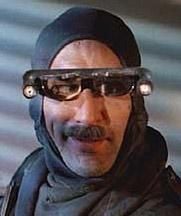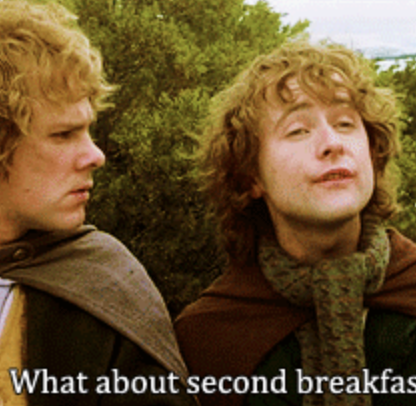not base 1100; and it’s round!
The most reliable way to communicate bases would probably be using unary. Now if your alien is using unary, that might not work, but it should for all higher bases.
I’m not sure if I fully understand.
I was thinking, wouldn’t it be easiest to describe the system you use by taking the last number in your first decimum and then saying you increment it with one?
E.g. for base ten this would be: base 9 + 1
For binary it would be: base 1 + 1
For hexadecimal it would be: base F + 1
Etc.But if you’re talking to an alien that uses base 4, they don’t know what you mean by “base 9+1”. Wtf is a 9?
Yes. Although at least you will both be aware that you are using different systems
- This is why I say “10” is not a number, it just means one big group and zero remainder.
- I am a huuuuge proponent of dozenal (base-12)
🤯
I get this comic which is about translation errors.
Comments are wildly off …
…BASE!
Clearly the human uses base 22.
That’s very clever. Maths checks out.
This one took me a bit.
Wow I never thought about that.
But it is always like this:
let there be any base "b" That can represent a number by the sum of their positional digits: number = sum(d_i * b ^ i) where i is the position index and d_i is the digit at this position. (note: index starts with 0, from the least digit farthest to the right)So the (decimal) number 4 in base 4 is then
1×4¹ + 0×4^0 = 10And (decimal) number 8 in base 8 is
1×8¹ + 0×8^0 = 10And 10 in base 10:
1×10¹ + 0×10^0 = 10Which is why to write hexadecimal, we added letters to it, because there isn’t a digit for “12”.
All your bases belong to 10
All your base are belong to 10
Someone set us up the base!
You have no chance to survive make your time.
You gotta tell the alien that you use base-22
Base 20. 1,2,3,4,10,11,12,13,14,20
That’s base 5.
No it’s base 10
just as theres no single numeral for 10 in base 10, theres no numeral for 4 in base 4.
1 2 3 10 11 12 13 20 21 22
pretty sure base 4 goes “1, 2, 3, 10”
There are only 10 ways of doing things: the right way and the wrong way. (Programming joke)
Will only if your language is 1-index based, yuck Otherwise there is just 0 and 1 way
There are actually 00000000000000000000000000000010 ways of doing things (in most languages)
Looks like 0100 rocks to me
deleted by creator
00 = 0 01 = 1 10 = 2 11 = 3 100 = 4 …
deleted by creator
Based.
Only when written, which is the whole point of notation. “Ten” is still a fixed amount, and so is four.
even when written out non base ten systems, are still possible to be non base ten.
It’s only base ten when you convert from one base system to another. We are merely referencing between two base systems when we say that 4 bits is “16” because there are 16 possible options there. 16 is just our conceptualized version and conversion of that base system, in ours. You can read binary as if it’s just powers of 2, it’s incredibly trivial.
octal and hex are the best example of this, because octal skips numbers while counting. Hex introduces letters. Neither of which fly even remotely sanely through base ten. Unless you’re converting.
“ten” is a fixed amount in base 10. A base 4 user may have an entirely different naming system for numbers above 3, so “ten” (which is written as 22 in base 4) could be twenty two, twoty two, dbgluqboq, or Janet. But similarly to how we don’t have a single syllable, dedicated number name for decimal 22 (as in, it’s composed of the number names ‘twenty’ and ‘two’), they may not have a single syllable, dedicated number name for decimal 10 (which is ‘22’ in base 4).
No, ten is a fixed amount in English. It has roots in base ten, but we also have eleven and twelve from other bases. (also dozen, gross, score.) In English there is no ambiguity when it comes to what number the word ten represents.
I never argued that. I wasn’t even talking about the word ‘ten’ in English but the usefulness of the word ‘ten’ in base 4.
EDIT: I see where you’re coming from: base 10 English also has a unique name for something that is not 0-9 or a power of 10 - however, the only reason to this is that they are from base 12. Obviously base 12 has unique words for numbers below the base. But not numbers above it (apart from maybe powers of 12). Which further proves the point.
My point is the difference between number system and language. We’re seamlessly converting back and forth while writing this, but there’s a specific amount in our heads that we’re trying to communicate, either by word or by number. The number is ambiguous only if you don’t know the base, while the word is ambiguous only if you don’t know the language. The meme is - presumably - in English, and they’re talking (in speech bubble form), so the misunderstanding doesn’t really happen. it’s only when a secondary ‘language’ is introduced - the numbers - that it is possible.
Ten in particular, which we usually write as a two digit number because of historical and biological context, still uniquely describes a certain amount without any relation to it being written as the first two digit number. In any language, you wouldn’t translate to one two three ten just because they usually write in base four, you’d translate to whatever their word for the number is that you’re trying to translate.
Huh, that’s a good point. A better universal naming system would be something like “Base x+1”, with x being one integer lower than 10. So humans would use Base 9+1, and the alien would use Base 3+1.
*This has been on my mind all day and the more I think about it, the more obvious it becomes how fundamentally terrible the name “Base-10” is. How did this never occur to the people who coined the term? Even the system I suggested is flawed as it’s still trying to incorporate the same bad logic.
A better system would be something like Base 9, stopping shy of the respective 10 in each system, or if it needs to be clarified, Base 9+0, as 0 is the extra digit in the first place, not 10.
I use base 8+1. What is 9?
we’d only be able to represent bases for numbers with one digit though because what does base 15+1 mean? the 15 could be in any base higher than 5. the clearest way would probably be to just represent it with lines or something “base ||||||||||”
Base 16 is typically represented with letters being used as the extra numerals, so it would end up being F+1. Problem solved.
what about numbers larger than 16?
We’ve got base 64, though it doesn’t quite follow the convention of starting with digits and following up with letters:
what about numbers after 64? comment OP and i were trying to come up with a universal rule which we did in his response to my first comment
Base /+1 lol
There are still 20 more letters that can be used as stand-ins. Things will get interesting if you try to go past Base 36, though.
this is exactly what i was trying to get at
Make up a new symbol?
Or use ancient scripts like Phoenician or Glagolitic.
Base 16
Do you mean Base G?
All your base are belong to us
What the fuck is G?
It would be the digit representing a value of 16 (i.e. the amount of lines here: |||| |||| |||| ||||), if you’re talking about it from the perspective of a number system with base 17 (|||| |||| |||| |||| |) or higher.
wait until you find out about hexadecimal systems. It turns out we already have words for referring to numbers lol.
i know about hexadecimal, but what if you need to refer to a base larger than 16? i’m not saying it isn’t possible to create symbols for every number, i’m saying if you have to describe your base with more than one digit, you encounter a problem of not knowing what base that multi-digit number is in.
well no, i know, i’m just saying that’s it’s not really that big of a problem, unless you’re using octal, and you skill issue.
You should design base systems to be independent of each other, and hex does a really good job at this, because often times it’s prepended with 0x to imply hex.
It’s only 15 to us because we use base 10 (or 9+1). Like how we have 4 through 9, but that aliens in the picture only count up to 3.
In the case of a mismatch, the culture using the higher base would just translate down (Base 21+1 in the given scenario).
Single units would probably be the simplest method, but also wildly impractical as the base gets higher. You really want to count each digit just to figure out someone uses Base 100?
that’s fair, translating down is a good idea
What about Roman numerals?
I think that would confuse things more than it would help. It’s base 5, unless it’s base 10, unless it’s base 50, etc. And then there’s the rules designating numbers 1 below certain other numbers, or 2 below, depending on the system being used. That’s a whole web of complications when communication is already murky.
One glyph to one integer communicates the number system being used more clearly.
Took me a moment
Octal is base 8. Decimal is base A. Hexadecimal is base G. Any questions?
every unsigned system is base -1 …or maybe -1+1
What about unniftimal? (Base 37)
If there’s no agreed symbol for digit 37, you can call it Base 37A (or express it in another base of your choosing).
In case the formatting doesn’t work, that A is supposed to be subscript
Jesus Christ.
I just realized that we call binary base2 and there’s no 2 in that numbering system. We call hexadecimal base16 but there’s no 16 (at least not like we know it). But then why is base10 base10? We have a 10…but it’s not a single digit number.
Why is this reminding me of Project Hail Mary?
It’s because we count the 0… no? 0 and 1, base 2. 0123456789, base 10.
The same is true for all bases. What we call base-4 in base-10 is 0123. In base-16 it’s 0123456789abcdef, where f is what we would call 15
Every base has ten, but it’s made of two digits
Binary 0, 1, 10 Ternary 0, 1, 2, 10 … Decimal 0, 1, 2, 3, 4, 5, 6, 7, 8, 9, 10 Hex 0, 1, 2, 3, 4, 5, 6, 7, 8, 9, A, B, C, D, E, F, 10
Each has the right count of digits for its base before you go two-digit - binary has two (0, 1), etc
more precisely, every base has 10, but it’s usually not equal to ten. ten is a fixed value, while 10 depends on the base. you still count normally (one two three four five), even in a base two system. you just write it differently.
I don’t see the need to bring values into this, this is about the naming of number systems. We really have no more claim to ten being this many (…) than hexadecimal people have to claim ten has this many (…)
10 as the first overflow of digits is not a clear vlaue, it depends on the notation because its base is unclear.
Ten as the English word is 100% defined. The issue is we translate seamlessly between the word and number, but there really is no confusion when writing ten. 10 in hex has a different english word: sixteen.
English number names are mostly decimal-based, but their values are still fixed. Ten isn’t the word for “the first time our number system overflows”, it’s an amount.
So I disagree. Ten will always be (…) this many, because it’s an English word.
If you are working in a different number system with other people ten loses its unique meaning just like any word that has another technical meaning.
In code 0x10 is hex 10 (what you’d call sixteen), but in spoken technical English you don’t need to pronounce the 0x
(There is no 10 in base-10, which is why we construct it out of two other numbers)
because then every base would be ‘base 10’
That or the decriarchy has been normalizing the decimal counting system as the default one for far too long!
Love that book!
What is this “8” you refer to? Here in the land of people without thumbs, 10 comes after 7.
If you have a problem with that you must also have a problem with the other two














